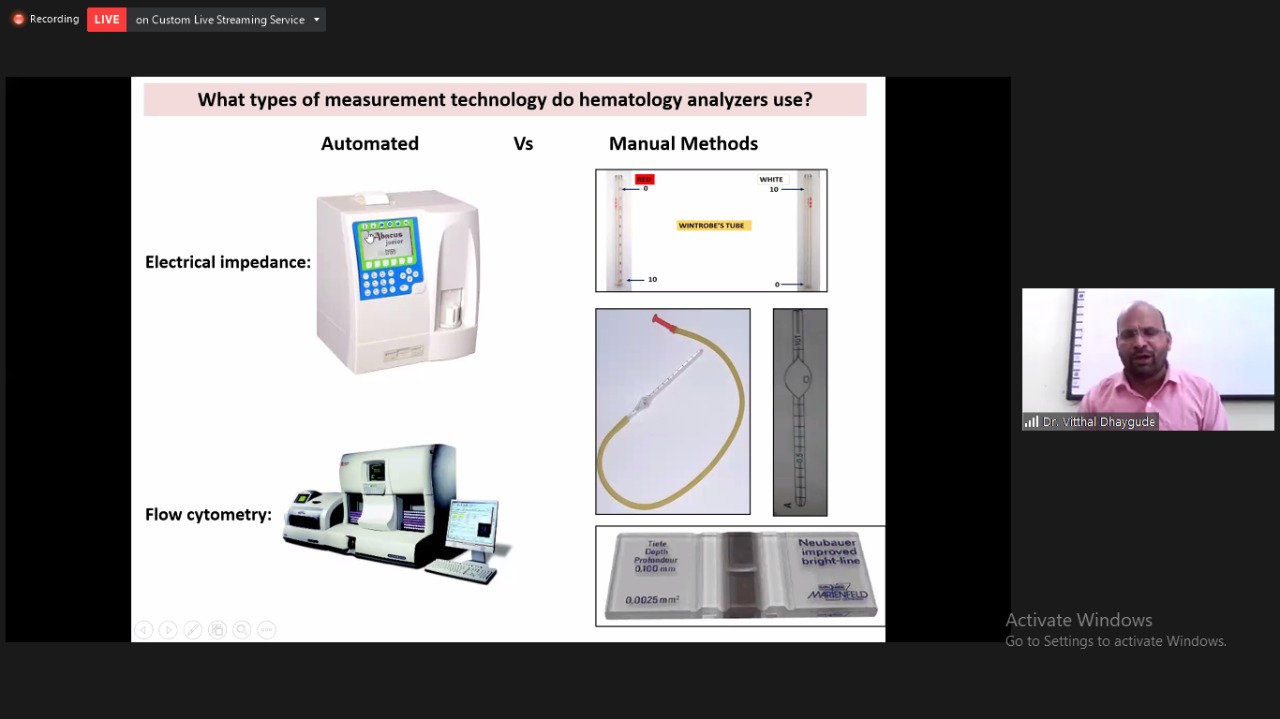UNAIR NEWS – Efforts to implement freedom of learning in independent campuses (MBKM) aim to encourage an autonomous and flexible learning process in higher education institutions. It is very much needed at this time. Therefore, the series of Guest Lecture activities of the Faculty of Veterinary Medicine (FKH) Universitas Airlangga continues.
Monday, October 18, 2021, FKH UNAIR Veterinary Pathology Division invited Dr. Vitthal Shrirang Dhaygude from the Faculty of Veterinary Science Maharashtra Animal and Fishery Science University India. On that occasion, Dr. Vitthal delivered a material entitled “Diagnostic Significance of Hematological Parameters in Veterinary Practice.”
At the beginning of the presentation of the material, Dr. Vitthal said that veterinary clinical pathology has developed rapidly in line with the increasing depth of understanding of pathophysiology and the increasing number and accuracy of laboratory examination procedures. Therefore, he continued, diagnostics and treatment are constantly evolving.
“A branch of science that uses the results of laboratory tests to explain clinical problems related to patients is known as clinical pathology. Thus, veterinary clinical pathology is a branch of veterinary medicine that studies the results of laboratory tests and then interprets these results for the benefit of veterinary clinics,” said Dr. Vitthal.
Clinical pathology, he continued, plays a vital role in the treatment of patients. This knowledge is valuable for establishing the diagnosis and controlling the treatment and progression of the disease.
“To be able to find out disease can be done by laboratory examination. One of the laboratory tests that we can do is a hematological examination. Veterinary hematology is a veterinary discipline that studies the components of animal blood cells and the functional abnormalities of these cells,” explained Dr. Vitthal.
Furthermore, Dr. Vitthal explained that blood is considered a special tissue that undergoes circulation, consisting of various kinds of cells submerged in a fluid called plasma. Slightly different from other tissues, he said, blood cells do not occupy a fixed space with one another.
“Blood flow in the body’s channels ensures a stable environment in which all cells and tissues are able to carry out their functions. In other words, the function of blood in circulation is as transportation, temperature regulator, and maintainer of fluid, acid, and alkaline balance,” said Dr. Vitthal.
Blood cells are broadly divided into red blood cells or erythrocytes, white blood cells or leukocytes, and platelets or blood platelets. Furthermore, leukocytes are broadly divided into granulocytes consisting of neutrophils, eosinophils, basophils, and agranulocytes consisting of monocytes and lymphocytes.
“For example, a hematological examination is an examination of blood hemoglobin levels,” said Dr. Vitthal.
Several chronic diseases, he added, such as tuberculosis, Johne’s disease, autoimmune hemolytic anemia, certain infectious diseases such as infectious equine anemia, distemper and others can be diagnosed through hematological examination.
“There are many kinds and methods of other hematological examinations, both for examination of bacteria, blood protozoa, viruses which are very useful for veterinarians to follow up on therapeutic programs,” he concluded. (*)
Author: Muhammad Suryadiningrat
Editor: Nuri Hermawan





